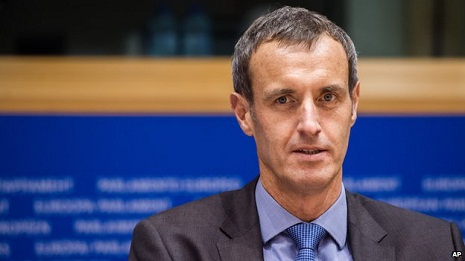“It is certainly the most serious terrorist threat Europe has faced since 9/11,” Europol director Rob Wainwright said.
In testimony to Britain’s House of Commons on Jan. 13, Wainwright warned that the EU would be unable to stop any jihadist campaign. He said member-states were overwhelmed by the number of jihadists and their support within Europe.
“The problem we are dealing these days is not just about Syria and Iraq,” Wainwright told a House of Commons committee. “It is about other terrorist networks around the world, in Africa, in the Arab peninsula for example, that have franchise movements of the Al Qaida brand.”
Wainwright testified amid a spree of Al Qaida-aligned attacks in France, which prompted the deployment of 10,000 soldiers. Officials said Al Qaida in the Arabian Peninsula, based in Yemen, was believed linked to the jihad campaign. On Jan. 14, AQAP claimed responsibility for the strikes in Paris.
“[AQAP] chose the target, laid out the plan and financed the operation,” AQAP commander Nasser Al Ansi, referring to an attack on a magazine that left 12 people dead, said in an 11-minute video.
Officials said the EU has formed a data base of 2,500 suspected European fighters for Al Qaida and ISIL. He said between 3,000 and 5,000 Europeans were seen as security risks who could be motivated to follow up on the attacks in Paris in early January 2015.
So far, Europol has determined and relayed 60 “urgent intelligence leads” to French police. But officials acknowledged that the EU was hampered in tracking the great majority of returning jihadists.
“The reality is today the security authorities don’t have the necessary capability, I think, to fully protect society from these kind of threats,” Wainwright said.
More about:















































